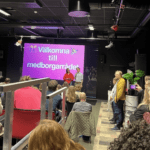
In Gothenburg, there is a strong focus on citizens and developing the city's ability to create and utilize citizen engagement in the climate transition.
Gothenburg hooks arms with Falköping.
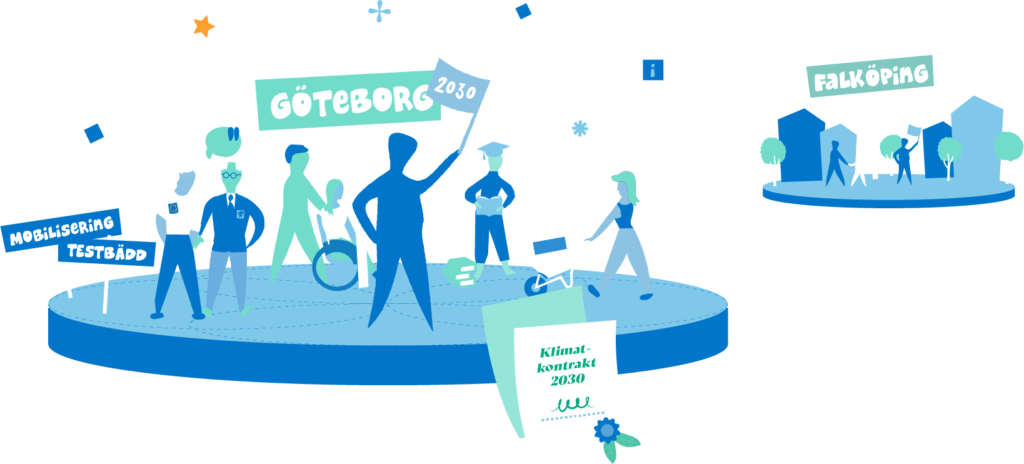
In Gothenburg, there is a strong focus on developing the city's ability to create and utilize citizen engagement in the environmental and climate transition, and in the spring of 2024, the city conducted a citizens' council, where 30 people were asked to contribute with thoughts and suggestions on how the city can engage and involve residents in the climate transition. Gothenburg is also working on a broad toolbox that includes mobility, climate-neutral construction, circular economy, cultivation, green infrastructure and nature-based solutions, and much more.
In Gothenburg, there are three major focuses: to develop a strategic basis for how Gothenburg can achieve its climate goals, to develop the city's ability to create and utilize citizen engagement and participation in the environmental and climate transition, and to increase the city's transition capacity through close collaboration with researchers. To succeed in the transition, the City of Gothenburg is working together with other actors in Gothenburg society, and not least the people of Gothenburg. Successful platforms have been developed with business, academia, civil society and other public government agencies bodies to promote the major changes required in areas where no single actor has the tools or mandate to solve the problems on their own.
The city is made up of multiple systems that need to be understood and addressed from many angles to accelerate the climate transition. The city has therefore developed action portfolios around seven strategic priorities in energy and industrial systems, mobility, transport, waste, sustainable construction, circular economy and agriculture.
Citizen involvement is also a major focus in the city, and in the spring of 2024 Gothenburg held a citizens' council. 30 people were given the opportunity to contribute thoughts and suggestions on how the city can engage and involve residents in transforming society for the environment and climate.
In the city's latest update, they talk about the work, the transition arena, the project portfolio and much more.


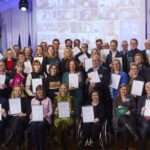
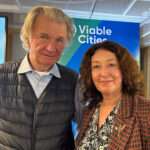

Salomon Abresparr, Process Manager for Climate Neutral Gothenburg 2030, salomon.abresparr@miljo.goteborg.se
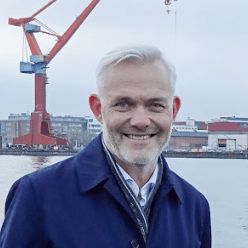
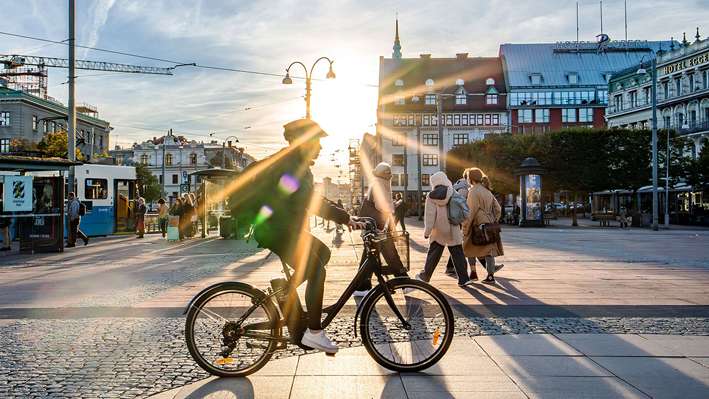
In Gothenburg, the municipality works with local property owners through mobility agreements. The agreements allow owners to build fewer parking spaces if they offer residents other ways to travel, such as access to carpools, public transport passes and cargo bikes.
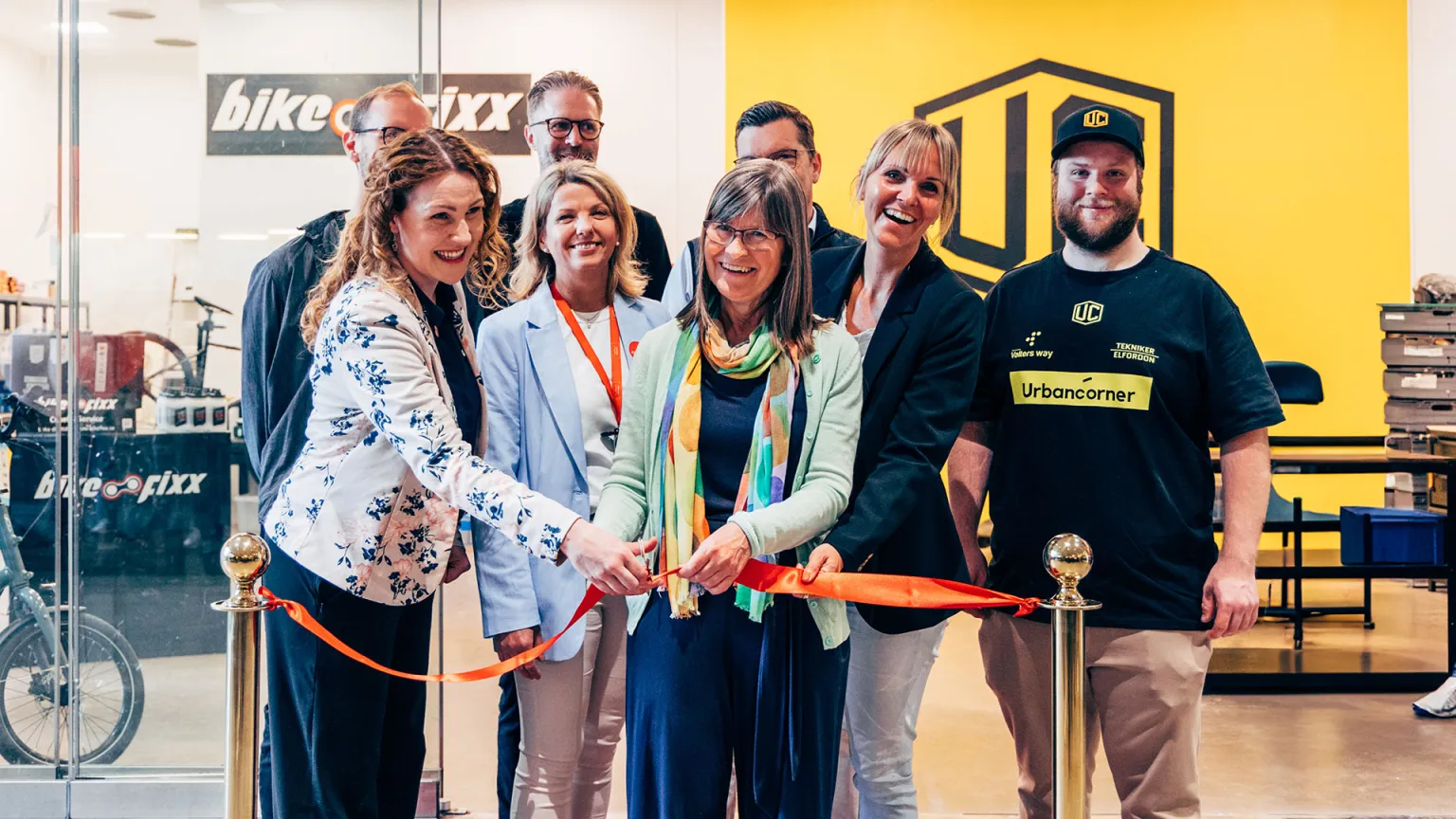
Business Region Göteborg, the City of Gothenburg and Nordstan Business Center have jointly developed Sweden's first mobility hotel, where six different actors collaborate to increase the share of green and emission-free transport in the inner city.
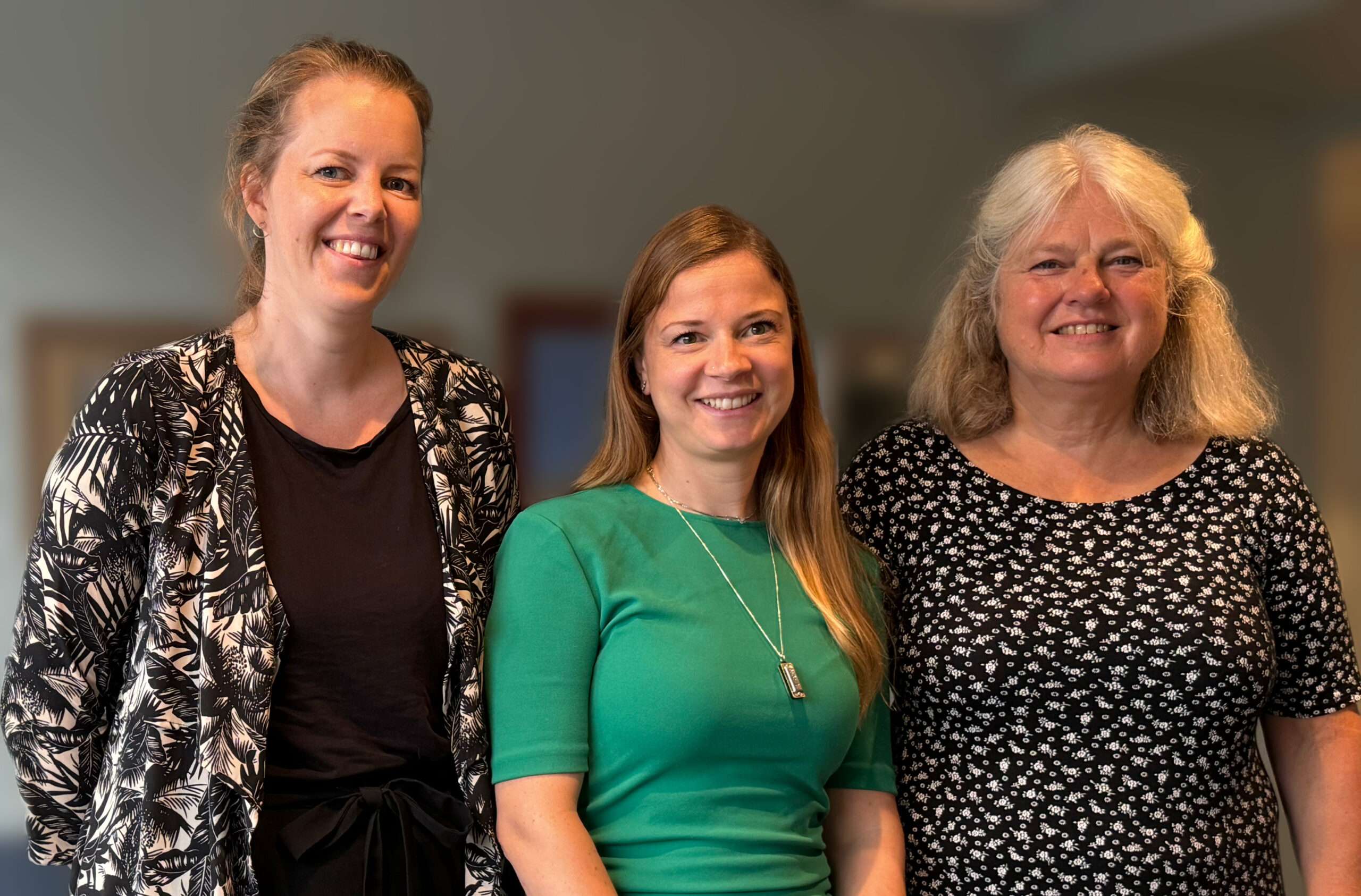
In Gothenburg, the Framtiden Group has developed a mobility strategy that aims to make it easier for its tenants not to travel by (own) car - both by offering sustainable alternatives and through the availability and pricing of parking.
Gothenburg highlights additional actions that they believe may be of particular interest to other municipalities to spy and apply. Contact the process leader to spy and apply.
Climate City Contract 2030 is a collective effort to achieve the climate transition that we need to implement in a short time to keep global warming below 1.5 degrees. It is an agreement between municipalities, government agencies and Viable Cities where all parties undertake to make a concrete contribution to increasing the pace of climate change.

To achieve deep change, we need to move from fragmented projects to an ecosystem of efforts that all pull in the same direction. Cities are doing this together with Viable Cities, funders government agencies and other partners, in different constellations and with different objectives. It is about moving beyond dealing with symptoms and instead focusing on underlying problems in our social structure. Here you will find the initiatives and studies within the city that have been granted funding under Viable Cities.
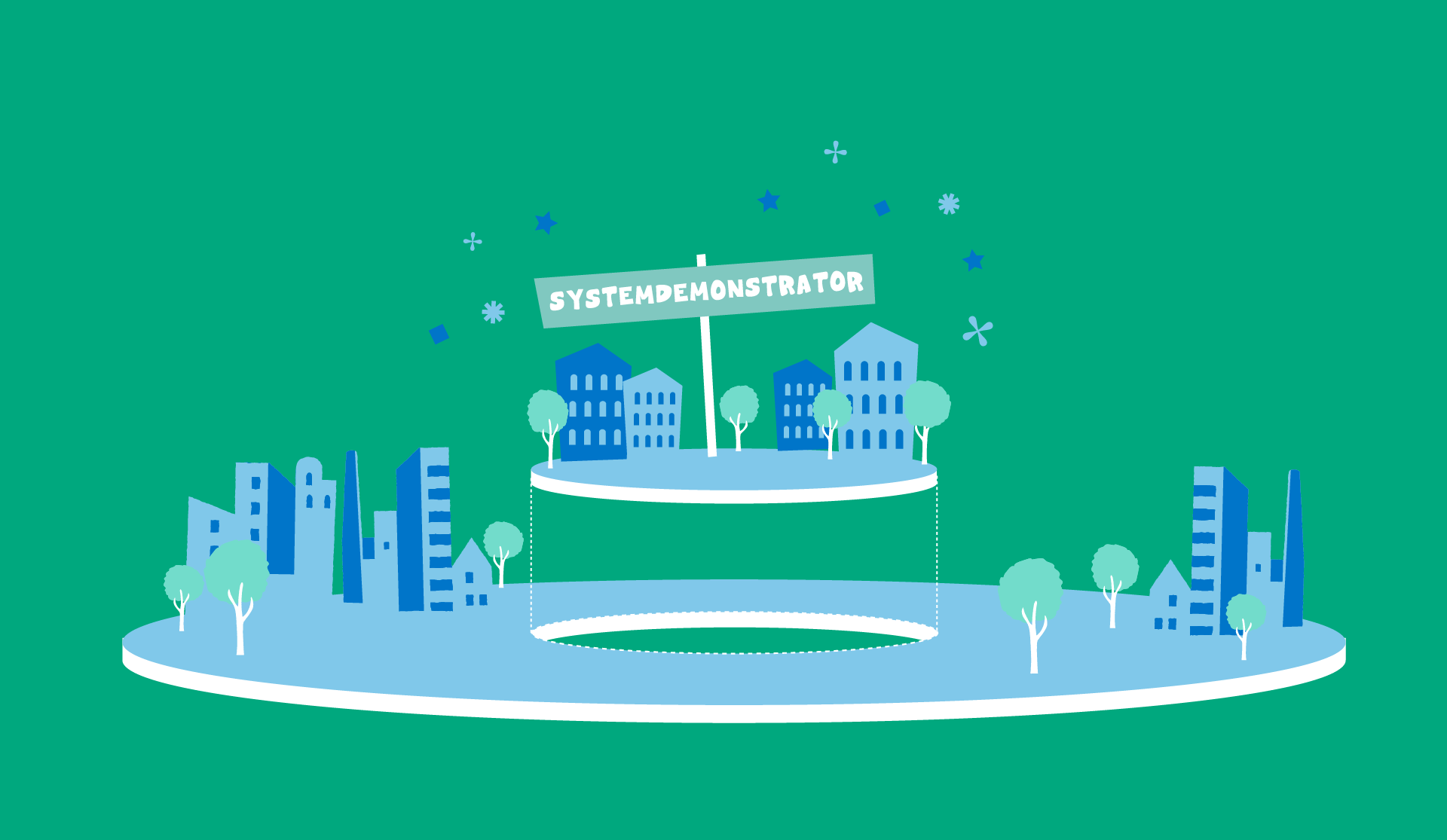
We want to move from an energy system that relies heavily on fossil fuels and increasingly on bioenergy...

Sharing Cities Sweden is a national program for the sharing economy in cities. The program aims to put Sweden on the map as a...

An important purpose of developing climate investment plans is to look at the total investment needs to reach the climate targets for the...

City as a Platform is an innovation initiative that brings together 18 municipalities to explore, test, implement and collaborate on common IoT platforms...

The initiative will develop methods and models for how public events can accelerate the climate transition in cities. The project brings together Sweden's...

Building materials are a major source of climate emissions in our cities. The initiative focuses on new ways to reduce the use of new materials and...

The initiative will explore ways to attract more people to consume food in more environmentally and climate-friendly ways. The aim is to understand...

The initiative will shorten the links between research and practice in working with three-dimensional (3D) real estate to accommodate several...

In October 2024, Gothenburg was one of 20 European cities to be awarded the EU Mission Label for its work to accelerate the transition to a climate-neutral and sustainable city.
Since 2022, Gothenburg is part of the first cohort of pilot cities from twenty-one EU Member States and Horizon 2020 associated countries, selected to launch unprecedented climate action, through the NetZeroCities Pilot Cities program.
Gothenburg is part of the NetZeroCities 112 Mission Cities, selected since 2022 to pioneer the EU Cities Mission.